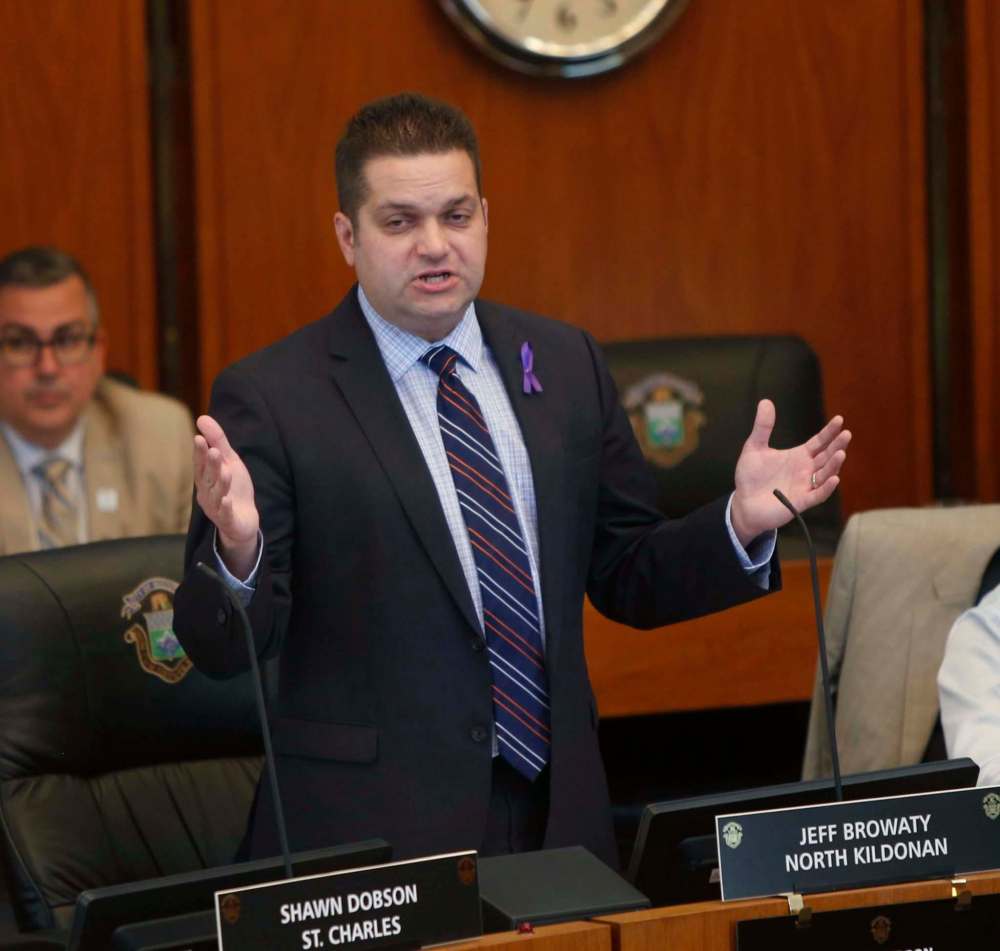Citizens can understand big words
Advertisement
Read this article for free:
or
Already have an account? Log in here »
To continue reading, please subscribe:
Monthly Digital Subscription
$1 per week for 24 weeks*
- Enjoy unlimited reading on winnipegfreepress.com
- Read the E-Edition, our digital replica newspaper
- Access News Break, our award-winning app
- Play interactive puzzles
*Billed as $4.00 plus GST every four weeks. After 24 weeks, price increases to the regular rate of $19.95 plus GST every four weeks. Offer available to new and qualified returning subscribers only. Cancel any time.
Monthly Digital Subscription
$4.99/week*
- Enjoy unlimited reading on winnipegfreepress.com
- Read the E-Edition, our digital replica newspaper
- Access News Break, our award-winning app
- Play interactive puzzles
*Billed as $19.95 plus GST every four weeks. Cancel any time.
To continue reading, please subscribe:
Add Free Press access to your Brandon Sun subscription for only an additional
$1 for the first 4 weeks*
*Your next subscription payment will increase by $1.00 and you will be charged $16.99 plus GST for four weeks. After four weeks, your payment will increase to $23.99 plus GST every four weeks.
Read unlimited articles for free today:
or
Already have an account? Log in here »
Hey there, time traveller!
This article was published 07/10/2017 (3027 days ago), so information in it may no longer be current.
Before elections, politicians are quick to pay homage to the collective intelligence of the citizenry. With slogans such as “listening to the people,” politicians host town hall meetings, invite emailed input and door-knock to seek the homeowners’ thoughts on weighty matters.
After elections, it seems citizens aren’t that smart after all, at least judging by the actions of politicians who commission reports but then withhold or manipulate results they think might confound the public.
Manitoba is currently experiencing two disheartening examples of governments suppressing reports that would let the public be better informed on important issues: health-care changes and reopening the intersection of Portage and Main.

In both cases, the costs of the reports were paid by the same taxpayers who were then told they couldn’t see the reports. If you’re miffed your taxes helped pay for reports you’re not allowed to read, get in line.
Since November 2016, city hall administration has had the final draft of the Dillon report, an engineering study examining the effect on vehicle traffic if the Portage and Main intersection is reopened to pedestrians. The Manitoba ombudsman investigated why city officials refused to release the report and found Dillon has actually submitted three drafts of its study to city hall, the last two versions based on feedback from civic officials. The ombudsman also found an administrative committee overseeing the project was in a position to “accept, reject or make changes to the entire (consultant’s) report, including background, factual or technical information.”
Some version of the report is finally set to be presented to the Oct. 25 council meeting, but that’s not good enough. The public would be better served if it’s outlined how city administration manipulated the initial report they kept secret.
As Coun. Jeff Browaty (North Kildonan) says, “Let’s see what the original traffic engineers, the professionals had to say, not the changed facts that the city is saying.”
At the provincial level, there is another example of politicians refusing to release a report because the content might be too complicated for citizens to grasp. Although a KPMG report on government spending was released this week, there is a second KPMG document that remains secret. It deals with health-care spending and likely gives knowledgeable context with which to judge the Pallister government’s sweeping changes.
Finance Minister Cameron Friesen said releasing the report would confuse people about changes unfolding in health care. “I think it would add to the confusion” that exists now over changes to the health-care system, he said. “I don’t think it would provide any comfort.”
With regard to Mr. Friesen’s concern about the comfort level of Manitobans, what discomforts us is that a government that pledged to be open is now blocking public access to an important document.
There’s a level of arrogance, or perhaps a disinterest in getting re-elected, in treating the public as if it’s too dim to understand consultants’ reports. In the health-care field, for example, there are many people who are well-educated and extremely motivated to read a report that might shed light on their livelihoods and the services they can provide Manitobans.
Manitobans can read, even the big words. Manitobans can judge for themselves the degree of credibility that the reports warrant.
And there’s another thing Manitobans can do: they can enter voting booths with a memory of politicians who disrespected the public as too simple-minded to view reports that, after all, were paid for with public funds.


